ADE Opens with Conversations on Power, Music and Community
This year, our ADE coverage actively seeks out the most compelling talks and events connected to the music industry. The Amsterdam Dance Event (ADE) is the industry-leading annual summit where international artists and business leaders converge.
COLORS Keynote with Kosta Elchev
Over the last few years, ColorsxStudios has grown to become a staple of music culture. Like Boiler Room before it, the company offered a unique take on artist interviews and live performances. Their carefully curated content catapulted them to become one of the most influential music platforms today.
Kosta Elchev is responsible for the brand’s partnerships, often at the heart of collaborations between big-name artists and multi-million dollar brands. His talk was a deep dive into how humans connect with art. To illustrate, he took the audience back to Ancient Egypt, stating that hieroglyphs and large statues were great branding for the pharaohs of their time.
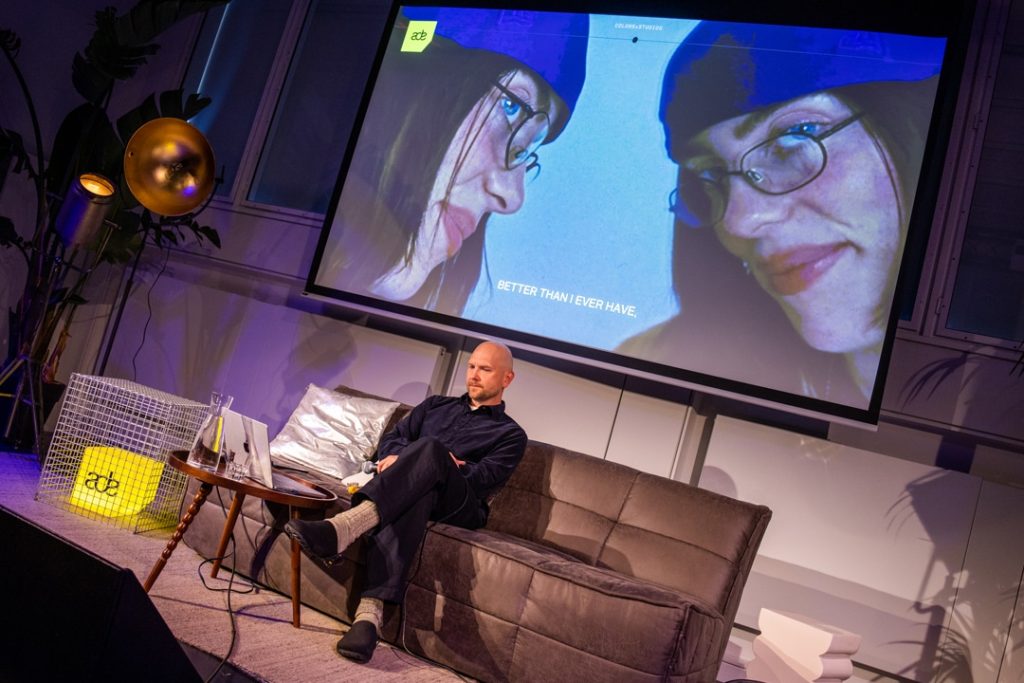
The brand expert did nothing short of dropping industry gems, stating humans don’t connect with logos and brands use artists to connect with and gain people’s trust. This, he explained, is a prime reason why AI content currently works with human faces so much: We trust and connect to the artists, even forming parasocial relationships.
Using famous examples like Billie Eilish and Jacob Collier, Elchev built a strong case for how artists elevate a brand into a trusted entity. The transfer of trust is what makes the collaboration worthwhile for companies. Rather than always being authentic, Elchev urges brands to be congruent.
“Humans identify themselves through association,” Elchev stated. “If you are trustworthy, people won’t mind you marketing to them. Audiences don’t hate being marketed to; they hate being manipulated.”
The COLORS brand collaborator used his own parasocial connection to R&B singer Aaliyah to explain why connecting to artists works, and how music brands can leverage that trust. This principle holds true even when using digital avatars, as Disney does—it all comes down to convincing the customer to trust the brand.
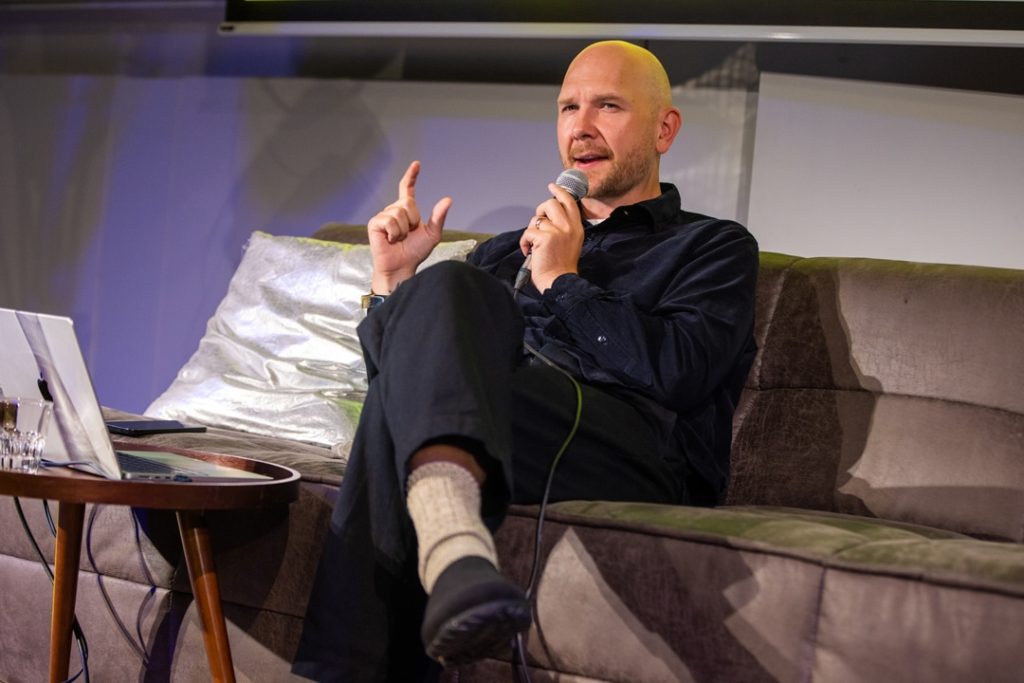
Exploring Brazil: How Foreign Artists and Festivals Connect with Brazil’s Electronic Scene
Music culture in Brazil is flourishing, yet it’s becoming increasingly difficult for festival organisers in São Paulo and Rio de Janeiro to secure international artists and festivals for the country, even though the Brazilian fanbase is unique and devoted. This development was recently discussed at ADE Pro by a panel of artists, tastemakers, and promoters.
Fernando Nasci and Cao Taborda of Gop Tun, who brought the ‘Dekmantel festival’ to Brazil twice, explored what made the collaboration work and why it ultimately ceased. A tough COVID pandemic and ongoing economic hardships in Brazil made it impossible to fund the fees that international artists are demanding today.
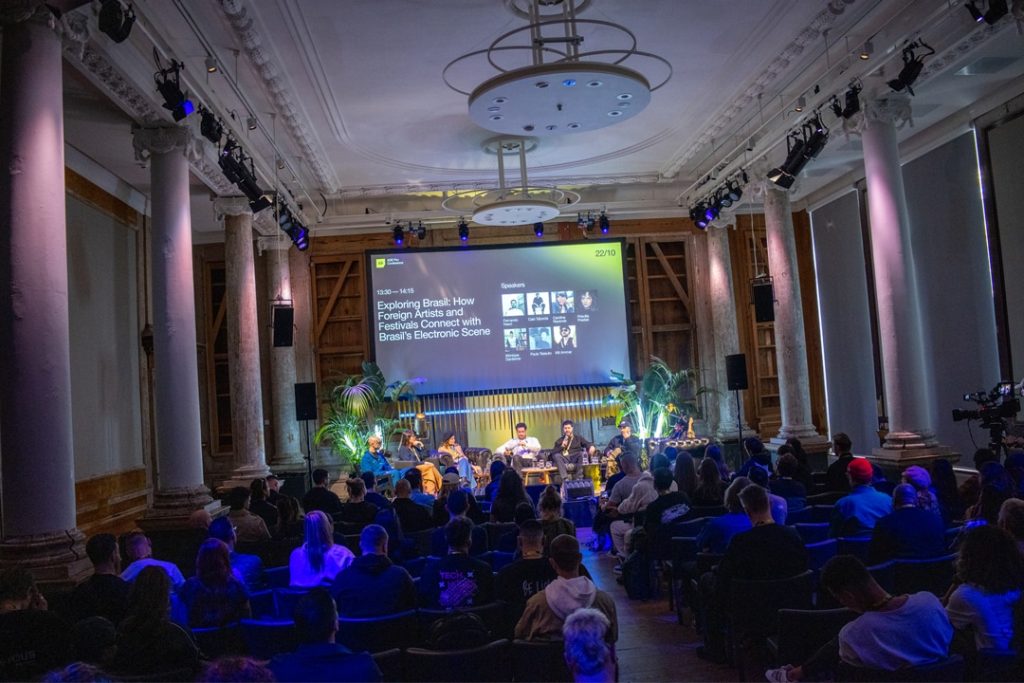
The panel also delved into why Brazil’s unique community culture proves challenging for international artists to truly understand. Mit Ammar from BOMA stated Brazil has a strong musical culture of its own. “When promoters pitch international acts to festivals in Brazil, they often sum up how good the local pool is and that hiring international acts will only cost them extra money.”
Priscilla Prestes of Alliance Artists also cited timing as a major issue. “Most artists want to visit Brazil in our summer, when it’s winter in Europe, and everything is planned around big events and special dates.” While better for the Brazilian calendar, very few international artists would risk giving up part of their European schedule to start something in Brazil.
The panel concluded on the shared insight that European artists need to be more proactive with the Brazilian industry. Measures like charging reasonable fees commensurate with the local economy or helping to set up countryside tours could make an impact, Paulo Tessuto from Caps Lock said. The Brazilian panel emphasised a core belief: that as members of the same global community, they need greater understanding from the European market.
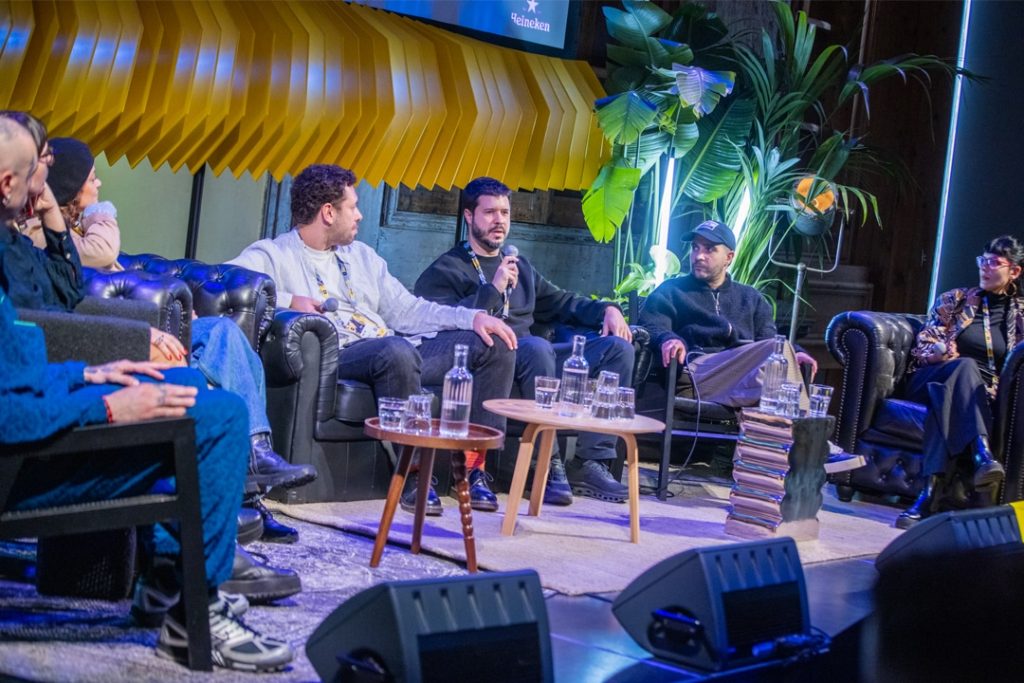
Who Holds The Power After Dark: Lessons from London’s Nightlife Taskforce
London’s nightlife is struggling. Between the closing of numerous prominent clubs and the extreme rise in street violence, the UK’s once-vibrant capital is slowly dimming to a crawl. Typically, regional government appoints a manager or support group from its own ranks.
Fortunately for the city, the Night Time Taskforce emerged. Mayor Sadiq Khan commissioned VibeLab to research how to secure London’s clubbing scene and to investigate what the nightlife actually means to the city. They convened a group of insightful individuals and stakeholders to tackle these pressing issues.
Nadine Noor from Pxssy Palace vividly recalled starting parties from her own house. She wanted a safe space to party, where she could, together with other communities that needed safety, dance as she saw fit. That idea led to a party that eventually grew so large that safety couldn’t be guaranteed. The core question remains: How can the city keep its nightlife safe and equitable?
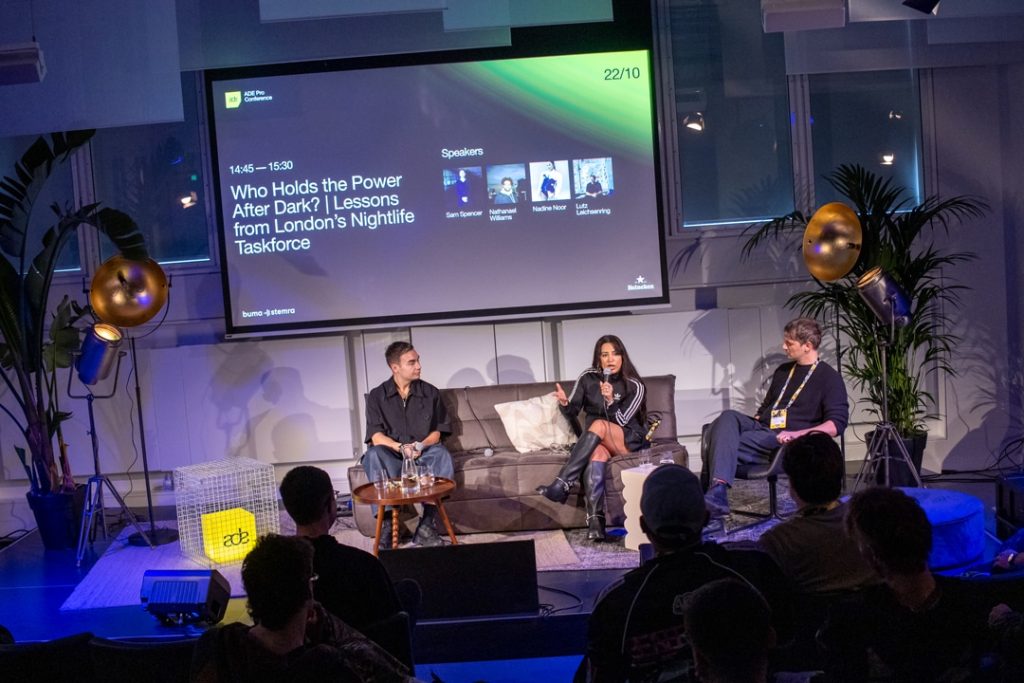
Sam Spencer from Broadwick Live acknowledged these issues. As parties grow, so too do the visitor numbers, which alarms the London Authorities. The GLA (Greater London Authority) convened the task force to determine the best way to manage events in London.
Nathanael Williams from the Night Time Task Force remarked, “We had to figure out a new model that works for our city. Models that worked for cities like Berlin and Amsterdam just didn’t translate to London. We had to reevaluate what nightlife actually is, and what it isn’t.”
The group emphasised the importance of acting as a separate entity from the London government. They are provided with a set of boundaries and instructions, but the task force maintains its autonomy, drawing its own conclusions and plans rather than simply adhering to external demands.
“All of this is possible because the group is industry-based, instead of being comprised of law enforcers. We can use the numbers, instead of the numbers being used against us,” Spencer said. He offered a clear example: “Take ADE, where you can get from the airport into a rave within three hours. That’s a well-planned and serviced event.”
The entire panel concluded with the shared vision that London nightlife must be passed on to the next generation intact. “I think it’s our social responsibility to do so,” Spencer added. Driven by this social mission to revitalise London’s club scene for everyone, the Night Time Task Force is now singularly focused on making clubbing viable and safe for the future.
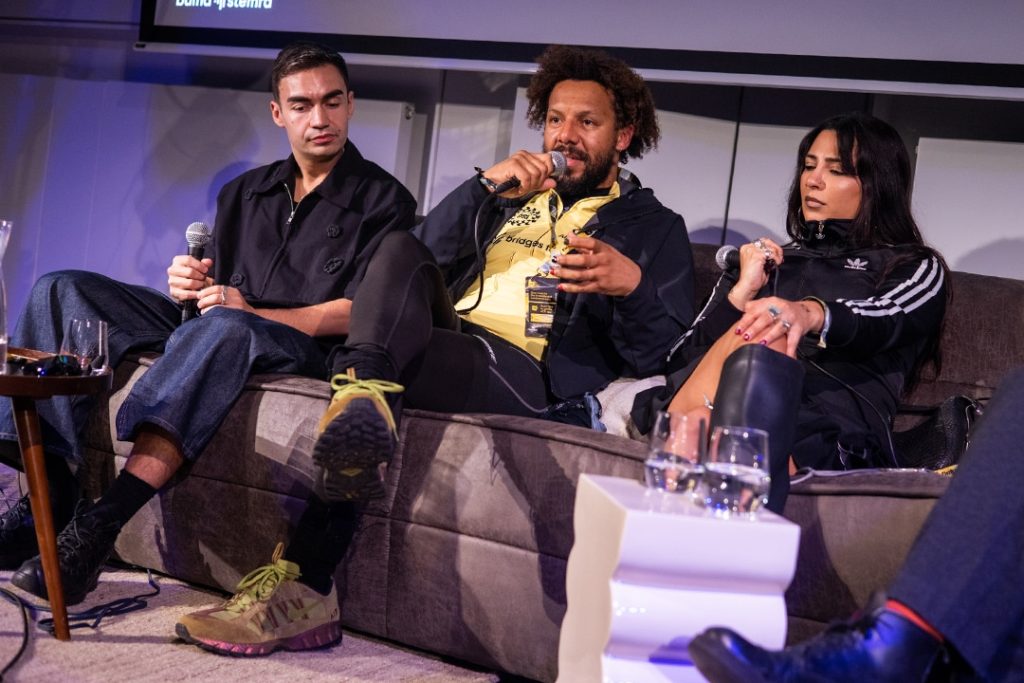
Armada Music Presents: Armin van Buuren, Hannah Laing & Joris Voorn on Defying Genre Boundaries
In the majestic Rosewood building, music label Armada Music packed a sold-out panel where industry heads Armin van Buuren and Joris Voorn discussed the paradoxical trend of artists simultaneously defining music within certain boundaries while genres slowly fade.
At Armada, the label has observed the trend of artists breaking with former styles for some time now. Armin himself is at the forefront of it, and doesn’t shy away from sonic deviations in his tracks. Still, the panel agreed that an artist or group must maintain a core recognisable sound or genre identity.
Hannah Laing, representing the younger generation of Trance music and sandwiched between two musical titans, found the musical merger of styles to be an interesting development. She argued that a foundational knowledge of a certain style is necessary to create truly good music. Only when an artist knows the genre’s rules is it safe to break them.
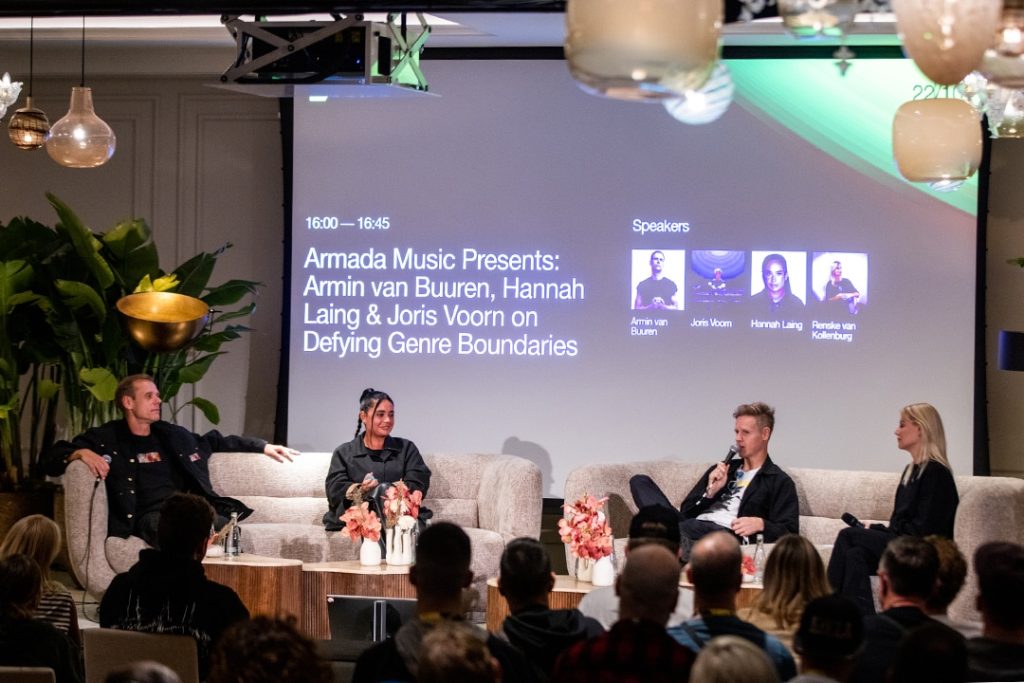
Joris Voorn, maintaining a more traditional stance, valued the return of certain younger artists to the essence of their style’s origins. Armin was quick to add that he encourages younger artists to actively seek the styles’ edges, without outright abandoning their foundation.
Although questions from the audience briefly diverted the panel, Armin noted that the power of labels like Armada comes from their ability to let artists experiment within their sonic space. And there is arguably no greater place in electronic music to meet this many like-minded producers and artists than the Amsterdam Dance Event.
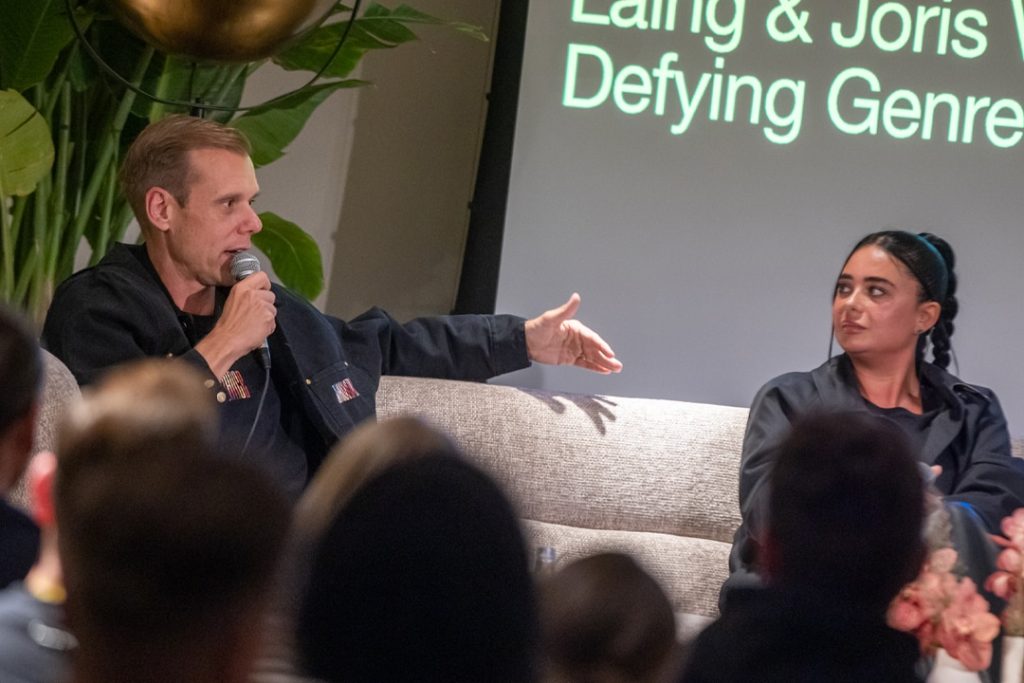
DJ AG’s Social Media Strategy: How to Build a Fanbase Fast
Ashley Gordon is better known as DJ AG these days. His infectious DJ streams have exploded in popularity far beyond the UK, captivating millions of viewers. The Londoner hosts livestreams out on the street, often featuring guest artists, and has recently attracted some major names.
At ADE Pro, AG spoke with Michail Stangl from CTM festival, who aptly curated his discussion. Moving from his regular job in 2022 to becoming a streamer, the transition hadn’t been easy for Gordon. Initially streaming from the comfort of his home, he eventually took to the streets to physically connect with people, a move that gained him fans all over London.
“I think the difference between a DJ and a livestreamer is the level of audience participation and interaction. As a streamer, I am constantly interacting with my audience,” AG said. “I have great moderators who really know how to work an online crowd and scope out any issues. Streamers, your mods are important!”
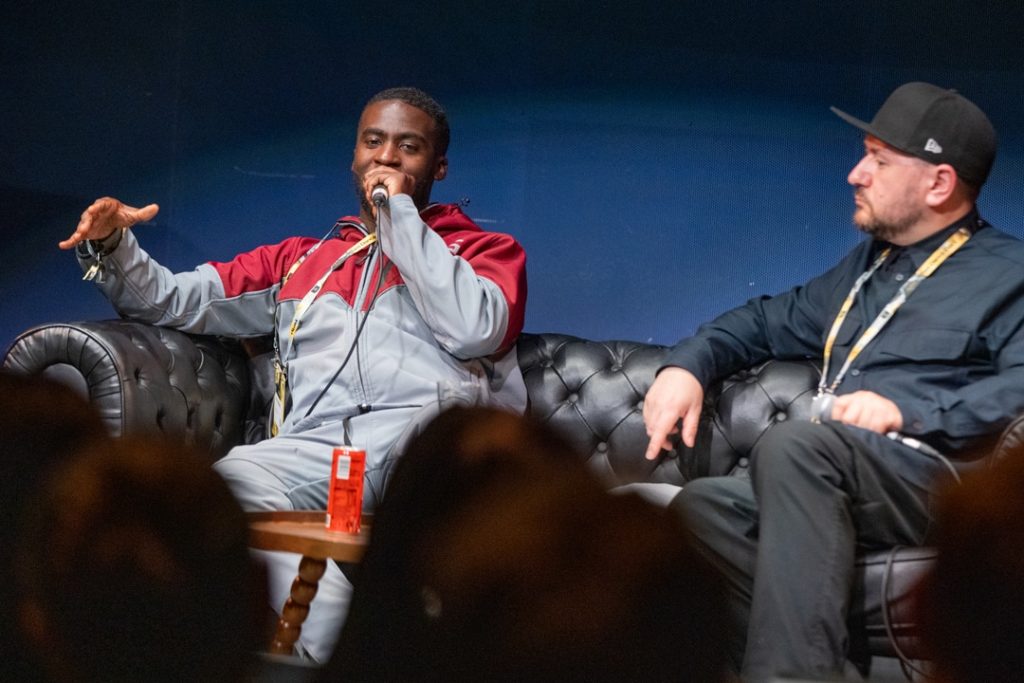
When asked about his rise to fame, the Londoner laughed, stating that it was hard work and a little bit of luck were involved. “At some point, I’m just doing stream after stream, trying to bring joy to viewers, and eventually, they will hopefully stick.” Stick they did. With over 1.5 million followers on TikTok and more than 500,000 on Instagram, his fans are clearly buzzing for new content.
A question about profits from the crowd had the DJ laughing. He stated he’s able to live off his earnings, but that his salary is nowhere near the level achieved by the biggest music streamers. “And we still have a team to pay as well,” the DJ added. “Everyone needs to eat on my team.”
With a few more general tips on consistent uploading and staying true to your core audience, the Londoner thanked the crowd for coming out. He also noted that in his bid to start doing streams around the world, much like Dom Whiting (of Drum and Bass on the Bike) did, he’s looking forward to doing an edition in Amsterdam.
That’s our roundup for the first day of ADE conferences. Check back soon for day two!
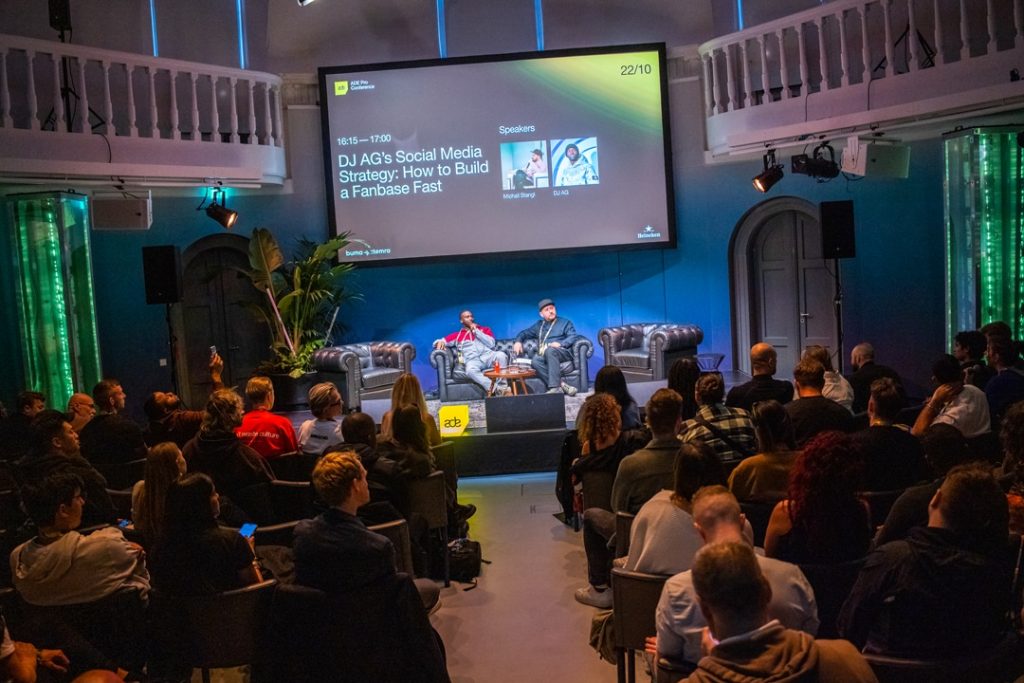
![]()




